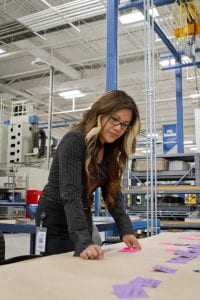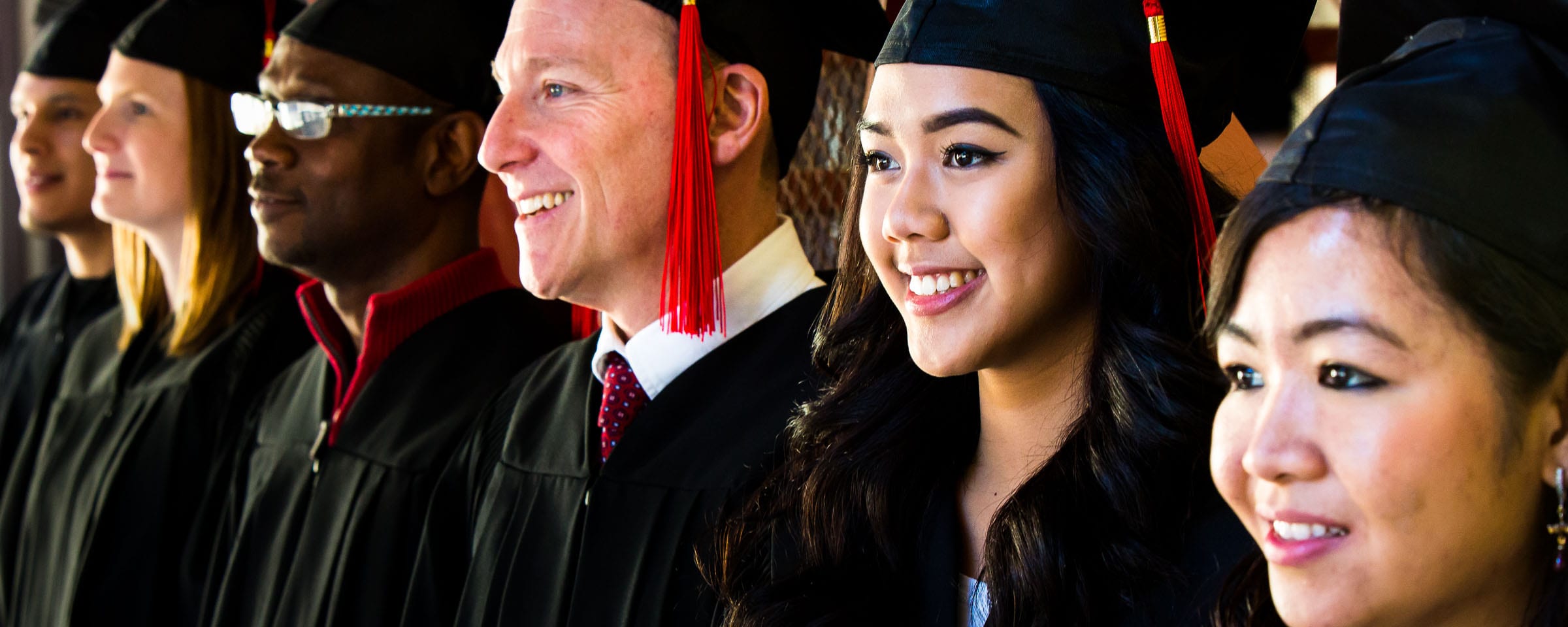Grad profile: Loriebeth Quileza (Technical Communication, 2005)
She’s clearly got a knack for the written word, given the rate at which she’s risen through StandardAero‘s ranks since being hired there only a short time ago.
But while we’d love to take the credit, it’s clear that Red River College grad Loriebeth Quileza has been busy sharpening her communication skills almost since birth.
“(Technical writing) is all about finding a simpler way to explain things,” says Quileza, a 27-year-old Winnipeg native who graduated from RRC’s Technical Communication program in 2005, and now works as Operations Excellence Project Manager (aka Lean Project Manager) for local aerospace firm StandardAero.
“Growing up as a second-generation Filipino-Canadian, I’m always doing that with my parents — trying to say things in a way they’ll understand, since English isn’t their first language!”
Raised in Tyndall Park, Quileza says she was always more of a tech-head than a wordsmith; she’s had a lifelong passion for computer sciences, and originally planned to study the field in university.
But by the time she got a few semesters under her belt, she’d downgraded that “passion” to more of a “love-hate relationship,” prompting the switch to RRC and its Technical Communication program, which offered a healthy dose of overlap.
“You’re taking the logic and the systematic thinking from computer science, and tying it together with writing skills and plain English,” says Quileza of the program, which trains students to communicate technical and scientific info via a range of media, including proposals, manuals, scientific articles, and web and electronic documents.
“You’re able to see what your basic fundamental tools are, and how they can be applied to a wide range of industries.”
The two-year course allowed Quileza to learn more about such industries as aerospace, manufacturing and biosciences, and to strengthen her (already-impressive) grammatical skills through exercises in word composition and sentence structure.
It also gave her the chance to become a published writer for the first time, as part of an assignment requiring students to produce journals filled with self-written articles.
“As much as you hate having spelling and grammar nailed into your head every day, I can now hold my head with confidence and say, ‘No, you want a period there and a semi-colon there,'” she says. “Those are valuable skills to have.”
Quileza completed her cooperative work placement at The Information Forge, a not-for-profit software company based out of the University of Manitoba’s Smart Park. Towards the end of her second year, she applied for — and landed — a summer job as a technical writer for StandardAero, where she quickly set to work editing and restructuring various policies, procedures and guidelines.
 “Aerospace is all about being ‘lean’ and making processes more efficient,” she explains. “The department I worked for was always looking for opportunities to improve, and new ways to implement more efficient tools in the process.”
“Aerospace is all about being ‘lean’ and making processes more efficient,” she explains. “The department I worked for was always looking for opportunities to improve, and new ways to implement more efficient tools in the process.”
Gradually, Quileza began focusing more on project management than on documentation. When West Jet put out a call for proposals for a multi-billion dollar maintenance project on the StandardAero site, she was the one who wrote, edited and formatted the company’s final proposal.
“It was a great challenge, since our bid partners were from France,” she recalls. “My technical writing skills really came out when we tried making the proposal sound cohesive, despite having multiple writers who also had English as their second language.”
The bid was successful, and since it increased StandardAero’s business commitments beyond their physical capacity, the company embarked on a plant expansion program — of which Quileza is now project manager.
“Everyone always asks how you go from being a technical writer to being a project manager,” she says. “I tell them the (Technical Communication) program sets you up for this, because they give you the basics. The biggest thing they teach you is to know your audience … you’re constantly evolving and adjusting to different learners.”
In fact, it’s the steady stream of new situations and challenges that inspires Quileza to continue stepping up her game.
“I never have just a regular day,” says Quileza, who still indulges her creative side by writing and editing FOKAL, a magazine celebrating Winnipeg’s South East Asian community.
“I’m not sitting at a computer for eight hours a day. I’m constantly interacting with new people and really getting into where things happen, which is always a really good learning experience.”
Click here for more information about RRC’s Technical Communication program.
Click here for more information about StandardAero.

